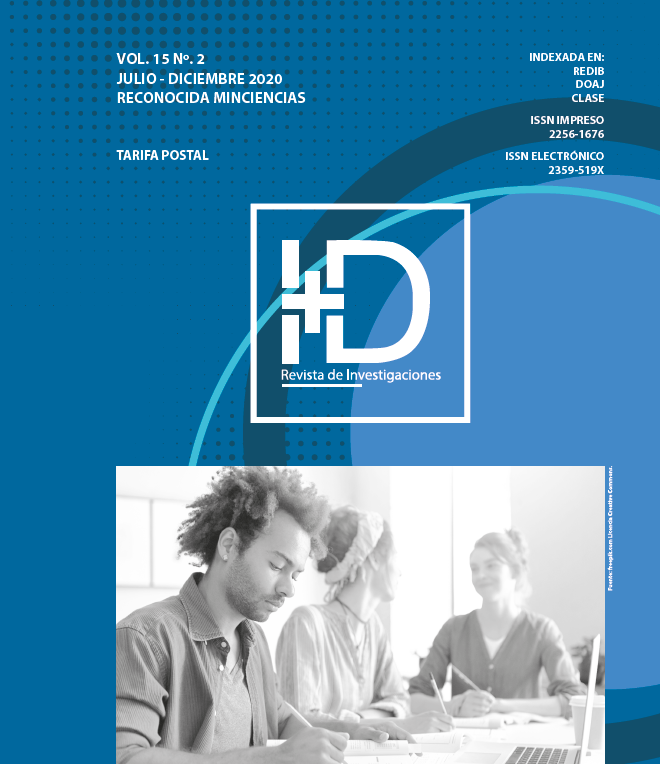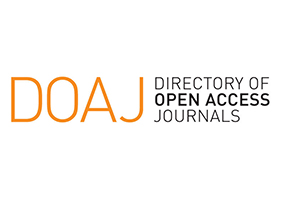Knowledge of HIV/AIDS in teachers of Petorca-Chile
DOI:
https://doi.org/10.33304/revinv.v15n2-2020005Keywords:
Knowledge, perception, teachers, HIV/AIDSAbstract
HIV is considered a global public health problem due to its progressive incidence. In Chile, the alarming increase in this pathology is reported, especially in adolescents and young adults. The objective of the present study was to characterize the knowledge of teachers in Petorca-Chile regarding HIV/AIDS, with a descriptive cross-sectional research design, using the HIV-AIDS Scale 65, applied to 22 teachers between 23 and 62 years (M = 39,91 ± 11.86). The results show that the teachers have mostly correct knowledge of HIV/AIDS, they present erroneous ideas regarding the routes of transmission (27%), treatment of the disease (46%) and negative attitude in a considerable percentage of the sample (41%). It is concluded that teachers can play a significant role in psychoeducation against HIV and other sexually transmitted infections, and it is necessary to strengthen education programs that involve teachers and educational establishments as agents of change in their communities.Downloads
References
Alarcón, A., Chahin, C., Muñoz, S., Wolff, M., & Northland, R. (2018). Perfil de personas con infección por VIH/SIDA: diferencial étnico, económico y socio-cultural en Chile. Revista Chilena de Infectología, 35(3), 276–282.
Alfonso, L., & Figueroa, L. (2017). Conductas sexuales de riesgo en adolescentes desde el contexto cubano. Revista de Ciencias Médicas de Pinar Del Rio, 21(2), 193–301.
Alvarado, J. (2013). Educación sexual preventiva en adolescentes. Contextos, (29), 25–42.
Aránzazu, C., & Cochuelo, C. (2019). La prevención del VIH/SIDA en la formación universitaria de los futuros educadores. Revista de Humanidades, (37), 127–150.
Balán, I. C., Frasca, T., Pando, M., Mabragaña, M., Marone, R., Barreda, V., … Ávila, M. (2016). Reseña del estudio “LINKS”: Factores asociados a la infección por VIH en hombres que tienen sexo con hombres de Buenos Aires, Argentina. Actualizaciones En SIDA e Infectologia, 24(91).
Beltrán, C., Zitko, P., Wolff, M., Bernal, F., Asenjo, A., Fernández, A., … Corporación Grupo SIDA Chile. (2016). Evolución de las características epidemiológicas y clínicas de pacientes adultos del programa nacional al inicio de la terapia anti-retroviral en la cohorte chilena de SIDA, 2001-2015. Revista Chilena de Infectología, 33(1), 2–10. https://doi.org/10.4067/S0716-10182016000700001
Berbesi, D., Segura-Cardona, A., Caicedo, B., & Cardona-Arango, D. (2015). Prevalencia y factores asociados al VIH en habitantes de calle de la ciudad de Medellín Colombia. Revista de La Facultad de Salud Pública, 33(2), 200–205.
Bermúdez, M. P., Buela-Casal, G., & Uribe, A. F. (2005). Adaptación al colombiano de la escala VIH-65. Universidad de Granada.
Castro-Sandoval, G., Carrasco-Portiño, M., Solar-Bustos, F., Catrien-Carrillo, M., Garcés-González, C., & Marticorena-Guajardo, C. (2019). Impacto de las políticas de educación sexual en la salud sexual y reproductiva adolescente en el sur de Chile, periodo 2010-2017. Revista Chilena de Obstetricia y Ginecología, 84(1), 28–40.
Fernández, S., Juárez, O., & Díez, D. (1999). Prevención del SIDA en la escuela secundaria: recopilación y valoración de programas. Revista Española de Salud Pública, (73), 687–696.
Ferrer, L., Cianelli, R., & Bernales, M. (2009). VIH y SIDA en Chile: Desafíos para su prevención. Temas Agenda Publica, 4(24), 1–11.
Folch, C., Álvarez, J., Casabona, J., Brotons, M., Castellsagué, X., & Grupo Jóvenes e Internet. (2015). Determinantes de las conductas sexuales de riesgo en jóvenes de Cataluña. Revista Especializada En Salud Pública, 89(5), 471–485.
Forcada, P., Pacheco, A., Pahua, E., Pérez, P., Todd, N., & Pulido, M. (2013). Conducta sexual de riesgo en estudiantes universitarios: factores de riesgo y protección. Revista Intercontinental de Psicología y Educación, 15(1), 23–46.
García, A. (2005). Educación y prevención del Sida. Anales de Psicología, 21(1), 50–57.
InfoSida. (2017). VIH/SIDA conceptos básicos. Retrieved from https://infosida.nih.gov/understanding-hiv-aids/fact-sheets/19/45/vih-sida--conceptos-basicos
Instituto de salud pública. (2016). Resultados confirmación de infección por VIH en Chile, 2010 - 2015 (Vol. 6, pp. 1–13). Vol. 6, pp. 1–13.
Lamotte, J. (2014). Infección por VIH/sida en el mundo actual. Revista Médica de Santiago de Cuba, 18(7), 117–138.
Luisi, V. (2013). Educación de la sexualidad en el contexto familiar y escolar. Revista Educere, 17(58), 429–435.
Machi, M., Benítez, S., Corvalán, A., Nuñez, C., & Ortigoza, D. (2008). Conocimientos, actitudes y prácticas acerca del VIH/SIDA en jóvenes de nivel medio de Educación, del área metropolitana, Paraguay. Revista Chilena de Pediatría, 79(2), 206–217.
Mathers, B., Degenhardt, L., Ali, H., Wiessing, L., Hickman, M., Mattick, R., … Strathdee, S. (2010). HIV prevention, treatment, and care services for people who inject drugs: a systematic review of global, regional, and national coverage. The Lancet, 375(9719), 1014–1028.
Ministerio de salud. (2010). Guía clínica síndrome de inmunodeficiencia adquirida VIH/SIDA (Segunda ed). Retrieved from http://www.who.int/hiv/pub/guidelines/chile_art.pdf
Ministerio de salud. (2019). Informe de ONUSIDA 2019: El 87% de las personas que viven con VIH en Chile han sido diagnosticadas. Retrieved from https://www.minsal.cl/informe-de-onusida-2019-el-87-de-las-personas-que-viven-con-vih-en-chile-han-sido-diagnosticadas/
Montero, A. (2011). Educación sexual: un pilar fundamental en la sexualidad de la adolescencia. Revista Médica de Chile, (139), 1249–1252.
Montero, I., & León, O. (2007). A guide for namingre search studies in Psychology. International Journal of Clinical and Health Psychology, 7(3), 847–862.
ONUSIDA. (2016). Estimaciones sobre el VIH y el sida. Retrieved from http://www.unaids.org/es/regionscountries/countries/chile
ONUSIDA. (2019). Hoja informativa — Últimas estadísticas sobre el estado de la epidemia de sida. Retrieved from https://www.unaids.org/es/resources/fact-sheet
Orcasita, L., Cuenca, J., Montenegro, J., Garrido, D., & Haderlein, A. (2018). Diálogos y saberes sobre sexualidad de padres con hijos e hijas adolescentes escolarizados. Revista Colombiana de Psicología, 27(1), 41–53.
Orcasita, L., & Uribe, A. (2011). Análisis de conocimientos, actitudes, susceptibilidad y autoeficacia frente al VIH/Sida en docentes de instituciones educativas de Cali-Colombia. Revista de Psicología Universidad de Antioquia, 3(1), 39–58.
Orcasita, L., Uribe, A., Castellanos, L., & Gutiérrez, M. (2012). Apoyo social y conductas sexuales de riesgo en adolescentes del municipio de Lebrija-Santander. Revista de Psicología, 30(2), 371–406.
Orcasita, L., Uribe, A., & Valderrama, L. (2013). Conocimientos y Actitudes frente al vih/sida en Padres de Familia de Adolescentes Colombianos. Revista Colombiana de Psicología, 22(1), 59–73.
Organización de las Naciones Unidas [ONU]. (2004). Cómo se transmite y cómo no se transmite el VIH. (Primera ed). Primera ed. Retrieved from https://unesdoc.unesco.org/ark:/48223/pf0000145970
Organización Mundial de la Salud. (2019). VIH/sida. Retrieved from http://www.who.int/mediacentre/factsheets/fs360/es/
Paniagua, F. A., O’boyley, M., & Wagner, K. D. (1997). The assessment of HIV/AIDS knowledge, attitudes, self-efficacy, and susceptibility among psychiatrically hospitalized. Journal of HIV/AIDS Prevention & Education for Adolescents & Children, 1(2–3), 65–104.
Sánchez, C., Acevedo, J., & González, M. (2012). Factores de riesgo y métodos de transmisión de la infección por el virus de la inmunodeficiencia humana. Revista CES Salud Pública, 3(1), 28–37.
Santamaría, C., & Uribe, A. (2017). Adherencia al tratamiento en pacientes VIH+ y terapia de aceptación y compromiso (ACT). I+D Revista de Investigaciones, 10(2), 89–101. https://doi.org/10.33304/revinv.v10n2-2017008
Siciliano, L. (2017). Estrategia docente para adolescentes sobre conocimientos relacionados con el virus de inmunodeficiencia humana. Archivos Venezolanos de Puericultura y Pediatría, 80(1), 15–22.
SidaChile. (2019). ONUSIDA publica Reporte 2019. Retrieved from https://www.sidachile.cl/onusida-publica-reporte-2019-confirmando-que-chile-lidera-el-aumento-de-la-transmision-del-vih-en-latinoamerica-pero-atenua-la-estimacion-del-incremento/
Tele13. (2017). Corporación Sida Chile asegura que contagios de VIH en jóvenes aumentaron un 66% entre 2010 y 2016. Retrieved from http://www.t13.cl/noticia/nacional/corporacion-sida-chile-asegura-contagios-vih-jovenes-aumentaron-66-2010-y-2016
Torres, M., & López, A. (2004). ¿Quieres saber sobre ITS/VIH/SIDA? Retrieved from http://www.sld.cu/galerias/pdf/sitios/bmn/100_preguntas_y_respuestas_vihsida.pdf
UNESCO. (2012). Estrategia de la UNESCO sobre el VIH y el SIDA. Retrieved from http://unesdoc.unesco.org/images/0019/001931/193118s.pdf
Uribe, A. (2016). Salud sexual, apoyo social y funcionamiento familiar en universitarios. Revista Virtual Universidad Católica Del Norte, 49, 206–229.
Uribe, A., & Orcasita, L. (2011). Evaluación de conocimientos, actitudes, susceptibilidad y autoeficacia frente al VIH/sida en profesionales de la salud. Avances En Enfermería, 24(2), 271–284.
Uribe, A., Valderrama, L., Sanabria, A., Orcasita, L., & Vergara, T. (2009). Descripción de los conocimientos, actitudes, susceptibilidad y autoeficacia frente al VIH/SIDA en un grupo de adolescentes colombianos. Revista Pensamiento Psicológico, 5(12), 29–44.
Vega, A. (1999). La Escuela ante el SIDA y sus consecuencias. Profesorado, Revista de Currículum y Formación Del Profesorado, 3(2), 1–13.
Velásquez, S., & Bedoya, B. (2010). Los jóvenes: población vulnerable del VIH/SIDA. Revista Medicina UPB, 29(2), 144–154.
Villegas, N., Cianelli, R., Santisteban, D., Lara, L., & Vargas, J. (2016). Factors That Influence the Acquisition of Sexually Transmitted Infections and HIV in Chilean Young Women Who Participated in the Online Intervention I-STIPI. Hispanic Health Care International, 14(1), 47–56.












